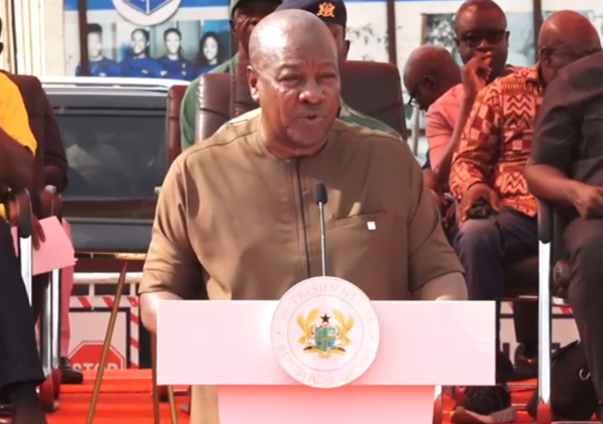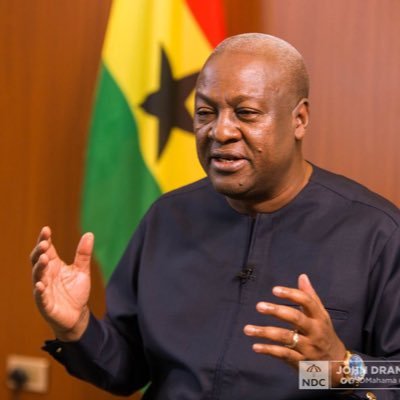President John Dramani Mahama has announced a major step to revive the poultry sector by supporting 50 anchor farmers to raise four million birds under the ‘Nkokɔ Nkitikiti’ programme.
The move, according to the President, is aimed at cutting down Ghana’s $400 million chicken import bill and boosting local production through a mix of commercial and household-level interventions.
“This year, we’re going to register 50 anchor farmers who will be supported to produce 4,000,000 birds, which will be equivalent to 10,000 metric tons of chicken”
President John Dramani Mahama
Launched during the unveiling of the Feed Ghana Programme in Techiman, the poultry initiative forms part of a broader strategy to restore Ghana’s food sovereignty, modernize agricultural practices, and improve nutrition across households.
The ‘Nkokɔ Nkitikiti’ project will be implemented in close collaboration with the Poultry Farmers Association, which received the announcement with enthusiasm at the launch event.
It will strengthen critical supply chain infrastructure such as “hatcheries, feed mills, veterinary services, and poultry processing centers.”

Support for Households and Women
In addition to the support for anchor farmers, the initiative will expand into households, especially to empower women.
A supplementary phase of the programme will register “55,000 households across the country,” each of which will be supported to rear 500 birds annually. This phase is expected to produce over a million birds.
President Mahama emphasized that this multi-level support mechanism is not only an economic intervention but also a social empowerment tool.
“We believe that this will rear over 1,000,000 birds and thereby improve the incomes of women and the nutrition of their children”
President John Dramani Mahama
Umbrella Strategy
The broader Feed Ghana Programme, under which ‘Nkokɔ Nkitikiti’ falls, is now the flagship agricultural intervention of the Mahama administration.
It is structured to unify all agricultural projects under one coordinated national framework. The programme’s core pillars include enhancing food production, promoting modern farming methods, upgrading infrastructure, and establishing agro-industrial zones across all regions.
As part of this strategy, institutions such as senior high schools with arable land will be supported to engage in crop and livestock farming. President Mahama revealed that schools will grow tomatoes, garden eggs, and pepper, while also raising livestock such as cows, goats, and sheep to help feed students.

“And so all our schools that have land available, you are gonna use some of that land for agricultural purposes”
President John Dramani Mahama
This initiative, he explained, is designed to complement the school feeding programme, improve student nutrition, and foster early interest in agriculture as a viable career.
With a focus on both national food security and household resilience, the Feed Ghana Programme is positioned as a transformative agenda.
By leveraging institutional capacity, community engagement, and private sector collaboration, the Mahama-led administration is aiming to reduce “Ghana’s dependency on imported food” while creating jobs and improving livelihoods across the agricultural value chain.
The unveiling of the programme in Techiman is the first in a series of rollouts expected nationwide as the Ministry of Food and Agriculture moves to operationalize the new strategy.
President Mahama’s renewed focus on agricultural self-sufficiency signals an urgent pivot from years of import dependency and an invitation to all Ghanaians to take an active role in rebuilding the country’s food economy.
READ MORE: Wencai Zhang Calls on Finance Minister, Pledges Stronger World Bank-Ghana Partnership





















